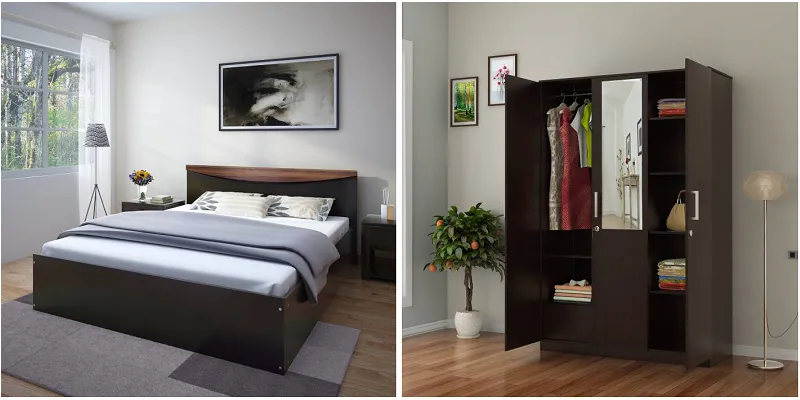Find out why Flipkart is building a team in Malaysia
Build one category at a time — that has been Flipkart’s mantra for a few years now, and this continues post the acquisition by Walmart. While the focus was on smartphone and large appliances categories for a few years, Flipkart has since last year started building up other categories like grocery and furniture.
With each category, Flipkart has also tweaked its approach. It grew smartphone and large appliances categories by focusing on exclusive partnerships, and in furniture it is going the in-house private label route.
There is a reason why Flipkart is following this scale-up-a-category-at-a-time approach. The company had GMV of $1 billion in FY2014, and grew this to around $4 billion in a year. Much of this rise in sales numbers can be attributed to the exclusive partnerships that Flipkart was able to stitch up with smartphone brands, primarily Motorola. Motorola sold one million phone units in five months. Today, smartphones is the single biggest contributor to GMV for Flipkart, and large appliances the second largest. Flipkart’s GMV was at $7.5 billion last fiscal.
Furniture as a category is similar to large appliances, and both these categories have bulky items, and so within Flipkart share a common logistics network. Furniture is one of the few categories that has high Average Selling Price, and also brings in high margins.
The offline industry is extremely fragmented with very few brands, and so customers were mostly relying on small furniture stores in the offline space. Pepperfry and Urban Ladder, founded in 2012, are the most well-known online furniture retailers. Both now have an offline presence and are scaling up their brick-and-mortar network significantly. However, about 90 percent of India’s furniture sector is unorganised and of the organised segment, only one percent is online. According to a RedSeer Consulting report, the home furniture industry in India was worth $25 billion in 2016, with the online furniture industry alone making up $250 million. By 2020, the furniture industry is expected to grow to $35 billion, and the online section will be worth $700 million.
However, these two companies cover only a part of the country. Pepperfry has its own distribution team in seven cities, and covers a 1,000 more through third-party players. It has physical stores in 16 cities. Urban Ladder delivers to 77 cities and has five brick-and-mortar stores. Pepperfry is the current market leader with a GMV of Rs 1,000 crore last year. The company is targeting GMV of Rs 5,000 crore by 2020.
Flipkart, on the other hand, is targeting GMV of Rs 750 crore in the furniture category by end of this calendar year.
What do customers want?

“We spoke to a lot of customers and the first insight we got was that there is no furniture brand (in the country). They wanted a brand as they see reassurance in that,” says Adarsh Menon, Head of Private Labels at Flipkart.
Flipkart did partner with existing brands, but this insight that there was no national furniture brand of significant size or recall led to the company deciding on launching an in-house furniture label, Perfect Homes.
Adarsh, whose private label team has already launched and scaled up in-house brands like SmartBuy and MarQ, went about building Perfect Homes in a systematic manner.
The team surveyed customers on their needs and zeroed in on what would turn out to be the four core attributes of Perfect Homes.
We found that the top attributes customers want in a brand are affordability, durability, super reliable after-sales, and range (from drawing room to bedroom and everything in between). While these are core attributes, there were also important but fringe requirements like innovation and design. We were surprised that design was not a core attribute. The belly of the beast is in affordability and durability,” says Adarsh.
The company built a team of furniture experts and since much of the top quality furniture in the world is made in Malaysia, Flipkart started finding partners there. In a few months, Flipkart will have its own team in Malaysia to handle first mile logistics and quality control.
Flipkart’s Malaysia partners will create engineered wood furniture, while China-based manufacturers will make upholstery, metal and glass products. The company has in place partners in India, primarily in Rajasthan, for solid wood furniture.
Attack the core
Flipkart already had a template ready with its SmartBuy brand, which covers a range of products from bedsheets to small appliances, and used the same for Perfect Homes.
The plan was to attack the core first as building critical mass was important. “We looked at all furniture categories in the house and picked the ones that are most penetrated. Within that we picked the ones that are most in demand,” says Adarsh.
Which is why when the brand was launched in September last year, the categories were bed, mattresses, dining tables, wardrobes, dressing tables, side tables, study tables and TV units. These, along with sofas, are the top selling segments within furniture. The Perfect Homes sofas were launched more recently.
Also Read: Flipkart to launch 165 more categories in private label this year (and more)
Offer something apart from price
An in-house designer designs the products. Typically the factories have inputs on the design. Once the design is finalised, prototypes are made and these prototypes go for quality check.
Unlike categories like phones and durables, India does not have any quality certification requirement for furniture. Even in manufacturing hubs, such quality checks at a mass scale are not available. Since durability was an important requirement, the team partnered with inspection and certification company Intertek to do quality checks of the prototypes. Now Flipkart has launched a quality certification, FurniSure, across brands. Most of the products of Perfect Homes have this certification.
Once the product passes the quality checks, the design goes for mass production. There are additional line checks and batch testing too. The products, most of which are in multi-part form, get shipped to Flipkart’s warehouses. Flipkart has opened the label to sellers for licensing, who own the actual inventory and sell the products on the site - this is how all online retailers manage private labels as multi-brand etailers with foreign investors are not allowed to own inventory as per India’s FDI laws.
Apart from durability and quality certification, the company is attempting to offer a better experience by focusing on after-sales. Flipkart has four warehouses specifically dedicated to furniture. The company also uses its large products focused logistics network for furniture deliveries. The company delivers furniture to 110 cities and customers can schedule their installation, which typically happens within 48 hours of delivery.
The company is planning more services like help with shifting furniture when a customer shifts home, and even cleaning services for furniture. “Customers don’t expect such services now. This will be a customer delight feature. Many of these are possible, but we are evaluating on what is feasible,” says Adarsh.

Why this brand is important
The brand is also priced competitively. Adarsh claims Perfect Homes products are about 30 percent cheaper than similar products offered by other brands, and yet the company is able to get a good margin. Adarsh declined to reveal the exact margin, but says the brand has been making profits from the time of launch.
When the brand was launched last year with a limited stock, the products were sold out in four days. The next batch of products were launched in February this year, and Adarsh says the brand already accounts for 25 percent of the category. In some segments like TV units, the brand accounts for over 50 percent of sales.
The company wants to increase this share to 50 percent in the overall furniture category on Flipkart (which translates to Rs 375 crore), and the goal is to become the biggest brand in the country. This is different from the targets the company has for other private labels. The SmartBuy range and MarQ are positioned in price ranges where other brands are either not available, or there are no quality products. They are meant to be brands that attract customers who are particular about the budget. Adarsh shares that most Perfect Homes customers are first time Flipkart shoppers.
One of the plans Walmart has with the Flipkart acquisition is to roll out omni-channel retail. While the company is not commenting on whether Perfect Homes will find an offline home in terms of stores, this brand is ideally placed for the Walmart-Flipkart combine to test out their omni-channel strategy.







